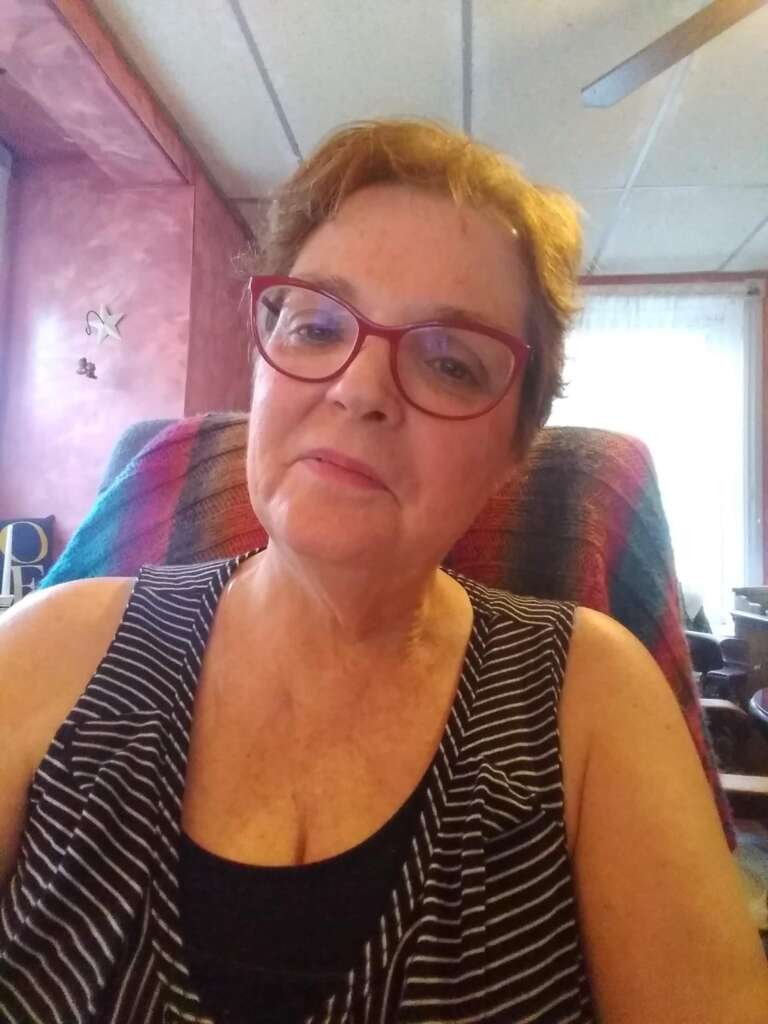Musings from a Musician
By: Valerie Pilkington
I just keep doing my best, pray that it’s blessed and Jesus takes care of the rest
I was listening to Joseph Prince about a week ago and was struck by how often he goes back to the original texts, Hebrew or Greek, and expounds on meanings. I thought I would do the same. It was not as easy as I thought, and I found help on a website called Hebrews4christians.com. Here is another version of Psalm 23. I am quoting from the Complete Jewish Bible:
The Lord is my Shepherd
Psalm 23:1 A psalm of David: Adonai is my shepherd; I lack nothing.
Mizmor le-David. Adonai Ro’i, lo echsar
Adonai Ro’i “The LORD my shepherd,” hearkens to Gen 49:24, where God is described as “The Shepherd, the Rock of Israel.” If God is Israel’s Shepherd, then His followers are (tzon mar’ito) – the sheep of His pasture (Psalm 100:3).
Lo echsar – “I shall not lack,” hearkens to Gen 22:14, where God is called (Adonai Yireh), “The LORD will Provide (or will see).” Since the LORD is our Shepherd, we will not lack His provision. God will see and fully understand our needs.
Green Pastures
Psalm 23:2 He has me lie down in grassy pastures, he leads me by quiet water,
Bin’ot deshe yarbitzeini, ‘al-mei menuchot yenahaleini
Menuchah means rest, quietness, and derives from (nachat), from which the name (noach, meaning “rest”) comes. The phrase ‘al-mei menuchot refers to “still” or “comforting” waters. (elohei khol-nechamah), the “God of all comfort” is the term the Apostle Paul uses in 2 Cor 1:3. This image reminds us that God is (Adonai Shalom), the “God of peace” (Judges 6:24).
On the Right Paths
Psalm 23:3 he restores my inner person. He guides me in right paths for the sake of his own name.
Nafshi yeshoveiv, yancheini ve-ma’gelei-tzedek le-ma’an shemo.
The word yeshoveiv (“He restoreth”) comes from (shuv), which means “to turn or return,” and is the root of the word (teshuvah), meaning turning back to God through repentance. As the Good Shepherd, (ha-ro’eh ha-tov), the LORD gives calls His sheep back to the right path.
The phrase ve-ma’gelei-tzedek uses the construct form of (ma’gal), a sort of track or entrenchment created by cattle being driven by a shepherd. Ma’gelei tzedek suggests that the Good Shepherd leads His sheep to tracks or pathways for His Name sake.
Death Dark Ravens
Psalm 23:4 Even if I pass through death-dark ravines, I will fear no disaster; for you are with me; your rod and staff reassure me.
Gam ki-eilekh be-gei tzalmavet lo-‘ira ra,
ki-attah immadi, shivtekha u-mish’antekha heimmah yenachamuni.
Even though we might walk within be-gei tzalmavet, a death-like valley of shrouded darkness, God’s sheep can say, lo-‘ira ra, “I will fear no evil,” since the LORD is (Adonai Tzeva’ot), the LORD of the armies of heaven, who is always present as (Adonai Shammah), the “God who is there” (Ezekiel 48:35).
A Table Before Enemies
Psalm 23:5 You prepare a table for me, even as my enemies watch; you anoint my head with oil from an overflowing cup.
Ta’arokh lefanai shulchan neged tzorerai,
dishanta va-shemen roshi, kosi revayah
The LORD honors His followers by setting a shulchan – or table in front of their enemies (i.e., those who cause the followers of the LORD tzuris, or grief). This image suggests the idea of (Adonai nissi), the LORD my banner (or the LORD my miracle. The phrase (dashanti va-shemen roshi) means “you fatten my head with oil.” Since fat animals were considered the healthiest, and fat was regarded as the best part of the sacrifice (Psalm 20:3), the head of the follower of the LORD is said to be “anointed with oil” as a poetic description of the blessing of God. The overflowing cup also suggests the image of (Adonai Yireh), “The LORD will Provide.
Goodness and Mercy
Psalm 23:6 Goodness and grace will pursue me every day of my life; and I will live in the house of Adonai for years and years to come.
Akh tov va-chesed yirdefuni kol-yemei chaiyai,
ve-shavti be-veit-Adonai le-orekh yamim.
Goodness (tov) and unfailing love (chesed) are said to “pursue me” (yirdefuni) all the days of my life. The verb used here, (radaf), means to run after, to track (as a hunter might track his prey), to pursue and take captive, suggesting that the Good Shepherd is relentless in His care and love for His sheep. God will haunt His followers with the truth of His goodness and unfailing love all the days of their lives. Yielding to the love of God causes you to return to the “house of the LORD” (the verb ve-shavti comes from (shuv), which means “to turn or return,” and is the root of the word (teshuvah).
What wonderful pictures of ALL that our Lord does for the US his sheep. Reminds me of words from a song, the goodness of God.
I love Your voice You have led me through the fire In the darkest night You are close like no other
I’ve known You as a Father I’ve known You as a Friend And I have lived in the goodness of God
And all my life You have been faithful And all my life You have been so, so good
With every breath that I am able I will sing of the goodness of God
‘Cause Your goodness is running after It’s running after me Your goodness is running after
It’s running after me With my life laid down I’m surrendered now I give You everything
‘Cause Your goodness is running after It’s running after me
In case you are interested, here is a link to the song:
https://www.youtube.com/watch?v=w3WDGpZjV4U
